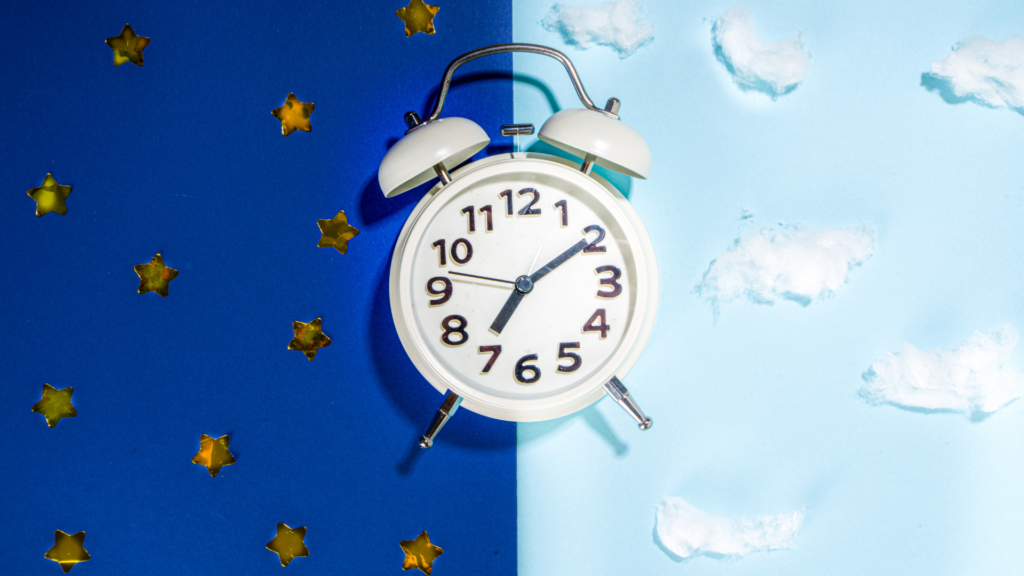Each spring throughout much of the US, most people face one Sunday with a sense of dread. That is the Sunday when daylight saving time begins, and we turn our clocks ahead one hour and “spring forward”. Many people dread the time changes in the fall and spring. And for good reason. Daylight saving time can wreak havoc on your life…and health!
Daylight saving time was started during World War 1 to help conserve energy. But in 1966 the US Congress made the change to daylight saving time each spring and ending each fall official. And while the time change may have helped conserve energy it is having a negative impact on health.
How daylight saving time affects your health

The biggest issue caused by both the starting and ending of daylight is the impact on the body’s circadian rhythm. The circadian rhythm is the body’s natural sleep and wake cycle. The change in time that occurs twice a year disrupts this cycle. Studies have shown that the circadian rhythm is not able to adjust to the change in time, particularly at the start of daylight saving time in the spring.
But what does this mean for you and your health?
Scientists have discovered that the start of daylight saving time is the most dangerous time change we face. There is a significant increase in auto accidents and work accidents reported in the days following the change to daylight saving time. There are studies that have also shown the connection between the start of daylight saving time and an increase in heart-related issues such as heart attacks and strokes. Emergency room visits were also shown to increase.
The change in time each spring has also been shown to impact mood levels significantly due to getting less sleep. This can also affect decision-making. And of course, the change to daylight saving time impacts sleep, which can lead to sleep deprivation.
The need for a regular sleep cycle
The body is designed to follow a regular sleep-wake cycle. The release of hormones such as melatonin happens as darkness falls each night. In the morning hours, when the sun rises cortisol levels increase to give you the energy to start the day. A man-made shift in time can disrupt the release of these hormones. This can lead to problems with sleep which can cause even more problems. Disruption of your circadian rhythm lowers the immune system, increases fatigue, impacts memory, accelerates aging, increases the risk for cardiovascular issues, and more. The body needs a consistent sleep schedule that is aligned with its natural sleep cycle. But switching to daylight saving time is preventing that.
What can you do to help your body?
Get daylight as soon as possible each morning!

It is important to expose yourself to daylight as soon as you can after waking up. This will help the body to start adjusting the circadian rhythm. But it is important to get outside and get your face in the sun to do this (just don’t look directly at the sun). The optimal time for morning sunlight benefits is from 7-10 am. UV-B light is lower at that time so it’s much more difficult to get a sunburn. After that, the rays get much stronger and there is a greater chance of getting burned. You should aim to get 20-30 minutes, but even 10-15 can be beneficial.
Minimize exposure to light in the evening
Turn off your computer and television and avoid scrolling on your smartphone all evening. Those screens emit blue light that mimics daylight and that blue light can throw off your circadian rhythm. Also, shut off very bright lights in your living space and opt for softer lighting for at least two hours before bed. Bright lights prevent your body from producing melatonin, the sleep hormone. Softer, dimmer lighting can allow your body to produce melatonin, which can help you get to sleep.
Skip the caffeinated drinks

It can be tempting after the time change to grab an extra cup of coffee to keep you going, but don’t! Have a cup or two of coffee or tea in the morning, like you normally would. But avoid caffeine in the afternoon, especially if you hit an afternoon energy slump. Drinking caffeinated beverages in the afternoon and evening hours can prevent you from getting good, quality sleep.
Get that body moving!
Be sure to get regular exercise. Exercise releases serotonin which can help the body to more effectively deal with the stress associated with the time change. Get out there in the morning and you will get the benefits of the early sun exposure. That can help you reset your circadian rhythm. But getting exercise in the afternoon or early evening can help improve your sleep as well. Just avoid exercising too late in the evening because it can interfere with sleep.
Skip the nap

Yes, you may feel tired in the afternoon for the first week after the time change. But avoid the urge to nap. Taking long naps during the day can interfere with your quality of sleep at night. It can prevent you from being able to fall asleep or stay asleep. This can prevent you from getting a full night’s rest.
Say no to that cocktail
There are plenty of people who grab a glass of wine or a cocktail to relax in the evening. But it’s best to avoid alcohol. Alcohol interferes with proper sleep cycles, so, although it may be tempting to have a drink to help you relax before bed, it may be making sleep more difficult.
Skip heavy meals close to bedtime

Heavy meals filled with sugar and fat can disrupt sleep if eaten too close to bedtime. If you know you will be eating a large meal, try to eat it earlier in the evening. If you must eat later in the evening, choose a lighter meal instead.
Go to bed a little earlier
In the days that lead up to the time change, you can go to sleep a little earlier each night. Going to sleep 15 minutes earlier the week before the time change can make the transition to daylight saving time a bit easier.
Most importantly, be patient with yourself. It will take some time to adjust to the fatigue associated with the time change. But you should see a difference in as little as 2-3 days.
